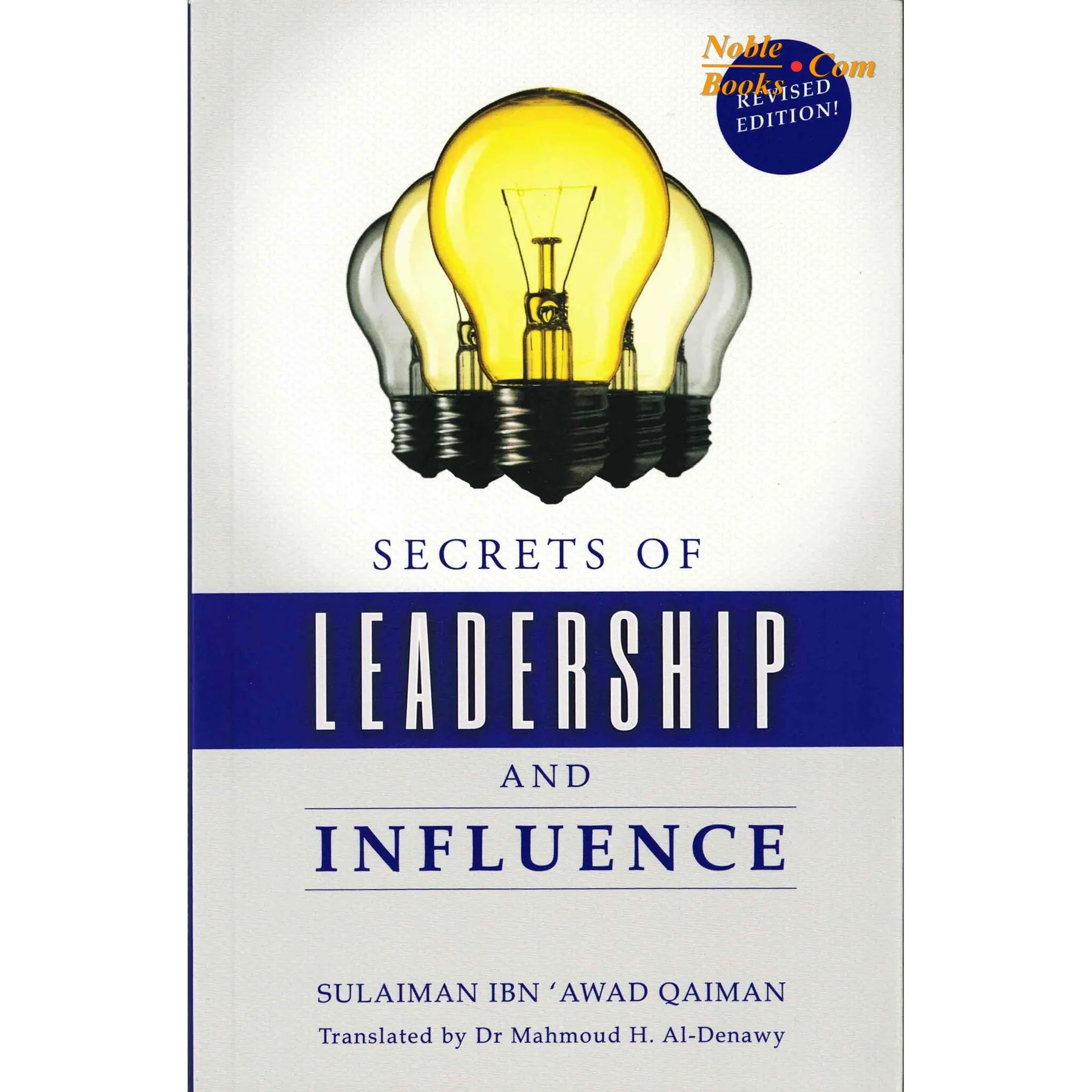Secrets of Leadership and Influence By Sulaiman Ibn Awad Qaiman
” Secrets of Leadership ” At all ages, leaders have influenced the course of nations, communities, and families. But in Islam, leadership is not merely exercised power it is a responsibility, an amanah. Sulaiman Ibn Awad Qaiman, with his book Secrets of Leadership and Influence, offers a profoundly thoughtful and usable manual that considers what it implies to be a leader in Islamic ethics. Based on the Qur’an, Sunnah, and lives of role models, this book is a timely guide for all who wish to lead wisely, sincerely, and with vision.
The Islamic Framework of Leadership
Unlike contemporary models that concentrate on influence, charisma, or authority alone, Islamic leadership starts with character (akhlaq) and intention (niyyah). The Prophet Muhammad ﷺ is the epitome of a leader who embodied moral greatness coupled with strategic genius. In this book, Qaiman describes how authentic leadership has to be anchored in sincerity towards Allah and accountability towards people.
He stresses that leaders need to personify taqwa (God-consciousness), justice, humility, and mercy. Leadership in Islam is not a privilege to be assumed, but a task to be dreaded and done. The Prophet ﷺ declared, “Each of you is a shepherd, and each of you is responsible for his flock.” This fundamental principle is developed throughout the book with instances from prophetic sayings and the lives of the Companions.
Vision, Wisdom, and Strategic Thinking
One of the core themes in Secrets of Leadership and Influence is the importance of vision. A leader must not only guide but also inspire others toward a noble purpose. Qaiman explains that vision is not just about planning but about deeply understanding your goals and aligning them with Islamic values. This kind of strategic thinking is what separated successful leaders in Islamic history such as Umar ibn al-Khattab, Salahuddin al-Ayyubi, and others from mere administrators.
The writer also provides practical means of crafting leadership vision, including continuous dua for guidance, consultation (shura), and seeking knowledge from noble scholars and advisors. He advises against automatic trust in instincts or trends without basing decisions on Islamic principles.
The Role of Communication and Influence
Influence is not manipulation; it’s sincerity, respect, and trust. Qaiman spends a few chapters discussing the power of communication. He learns lessons from the way the Prophet ﷺ communicated always purposeful, kind, and clear. Whether he spoke to a small group of people or spoke against a strong ruler, the Prophet’s words were chosen deliberately with gravity, never harsh.
This text assists the reader in knowing how to build good communication skills: listening first, speaking truth, and always with a view to benefit. Influence, here, is a byproduct of integrity not performance.
Emotional Intelligence and Dealing with People
One of the greatest strengths of this book is its focus on emotional intelligence. The writer teaches that a leader needs to know emotions his or her own and others’ in order to lead successfully. The Prophet ﷺ was renowned for his empathy; he could discern the emotional state of his companions and react with wisdom and compassion.
This level of emotional awareness helps prevent misunderstandings and resolves conflicts before they grow. Qaiman provides scenarios and reflections that help readers apply these lessons in daily life, especially in leadership roles at home, at work, and in community settings.
Leading by Example
Maybe the strongest type of leadership is leading by example. Qaiman speaks about how leaders need to practice the things that they preach. Hypocrisy destroys influence. The Prophet ﷺ, even though he was the leader of the Muslims, would still serve his family, go to battle, and give out wealth himself. His example generated trust and love.
The book reminds people that the behavior of a leader outside of the stage is as important if not more important than what happens onstage. Every choice, every action, every response becomes a mode of dawah (invitation) by leadership.
Dealing with Trials and Failures
Leadership is not simple. The journey is littered with trials, adversity, and times of doubt. Qaiman delves into how Islamic leadership handles adversity through patience (sabr), trust in Allah (tawakkul), and accountability (muhasabah). He tells us of the Prophet ﷺ’s trials, like Ta’if and Uhud, to illustrate that even the greatest leader experienced setbacks with steadfast belief.
This part is particularly reassuring to readers who are already leaders and feel bogged down. It comforts them that leadership is a path of development, not perfection.
Raising the Next Generation of Leaders
The book also mentions the vital work of developing future leaders. Parents, teachers, and members of the community are all involved in the process of developing leadership. By demonstrating healthy Islamic values, promoting responsibility at an early age, and providing opportunities to lead in minor capacities, we foster a culture of moral and empowered leadership.
Qaiman reminds us that tomorrow’s leaders will be made up of today’s youth. The earlier we invest in their knowledge and character, the more powerful our ummah will be.
Conclusion: A Timeless Guide for Meaningful Leadership
Secrets of Leadership and Influence is not simply a book; it’s a guidebook for those who want to lead purposefully, truthfully, and effectively. If you are a community leader, teacher, parent, or a would-be manager, the principles identified by Sulaiman Ibn Awad Qaiman provide clarity, framework, and inspiration.
In a world where leadership is made to be about popularity or dominance, this book puts us back on track with the Qur’anic and prophetic model. It shows us that the proper definition of leadership has nothing to do with being followed, but with serving people for the sake of Allah. That is influence at its finest.
Read more: The Clear Quran Series,English Only-Single Column-(Paperback)














1 comment